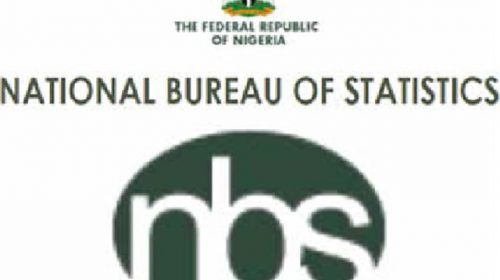Nigeria’s Inflation Rate Rises to 14.89% in November, Senate Passes 2021-2023 MTEF/FSP

By Ngozi Onyeakusi—– Recently released Consumer Price Index data by the National Bureau of Statistics showed that headline Inflation for November rose for the 15th consecutive month to 14.89% (from
14.23% printed in October). The nothward
movement in the headline inflation was chiefly driven by rising food inflation to 18.30% (from
17.38% in October). Heightened insecurity in the food producing states, higher logistics cost, lingering effects of Covid-19 pandemic and yuletide season demand exacerbated the food inflationary pressures for November. However, core inflation rate moderated to 11.05% (from 11.14% in October) despite the increase in the price of PMS and partial rise in electricity tarriff in Novemeber. Imported food index rose by 16.58% (higher than 16.51% in October) amid depreciatioin of the Naira – specifically, two months moving average foreign exchange rates at the BDC and Parrellel market rose y-o-y by 2.39% and 2.04% to N461.80/USD and N468.16/USD respectively in November 2020. On a monthly basis, headline inflation worsened to 1.60% in November (from 1.54% in October). Notably, monthly food inflation rose to 2.04% in November (from 1.96% in September) as prices of bread, cereals, potatoes, yam and meats, amongst others, increased. However, Core inflation rate slowed to 0.71% (from 1.25% in September) despite higher clothing and foot wear (+0.22%), transportation costs (+0.46%) as well as housing and energy costs (+0.23%). In another development, the Senate passed the 2021-
2023 Medium Term Expenditure Framework (MTEF) and Fiscal Strategy Paper (FSP). Amid the recent rally in the crude oil prices at the international market, the Upper Chamber pegged the crude oil benchmark at USD40 per
barrel and the daily crude oil production at 1.86 million barrel per day. Exchange rate was pegged at N379/USD,
Gross Domestic Product (GDP) rate was projected to grow at 3%; and inflation rate to hover around 11.95%.
Other specific details in the approved 2021-2023 MTEF/FSP include Federal Government projected revenue of N7.99 trillion. FG’s total expenditure for the year 2021 is expected to stand at N13.58 trillion, hence fiscal deficit to hit N5.60 trillion. Planned Fresh debts (including foreign and domestic borrowings) was N4.28 trillion, while debt service is expected to gulp N3.12 trillion. Sinking fund and statutory transfers were estimated at N220 billion and N484.4 billion respectively. Meanwhile, the National Assembly planned to pass the 2021 estimated expenditure on Monday, December 21, 2020 in order to sustain the January – December budget cycle. Elsewhere, crude oil prices headed for a seventh consecutive week of gains as it finally hit USD50. Traders expect demand to pick up next year as vaccination campaigns are rolled out worldwide. The West Texas Intermediate (WTI) crude price revved w-o-w by 3.04% to USD48.20 a barrel given the 0.62% w-o-w fall in U.S. commercial crude oil
inventories (excluding those in the Strategic Petroleum Reserve) to 500.09 million barrels as at December 11, 2020 (albeit, inventories rose by 11.92% y-o-y from 446.83 million barrels as at December 13, 2019). Also, Brent
price rose by 1.12% to USD51.50 a barrel as at Thursday, December 17, 2020.
We expect inflation to continue its upward trend in Decemebr as increased festive demand for goods and services, sustained exchange rate pressures and continued insecurity, especially in food producing areas of the country, are expected to have a negative impact on price level. Meanwhile, we commend the National Assembly for its effort to sustain the January – December budget cycle despite the challenges the country witnessed in the course of the year. We feel that this would further enhance fiscal spending as the country moves to recover from recession in early next year, 2021.
Cordros






Leave a Reply